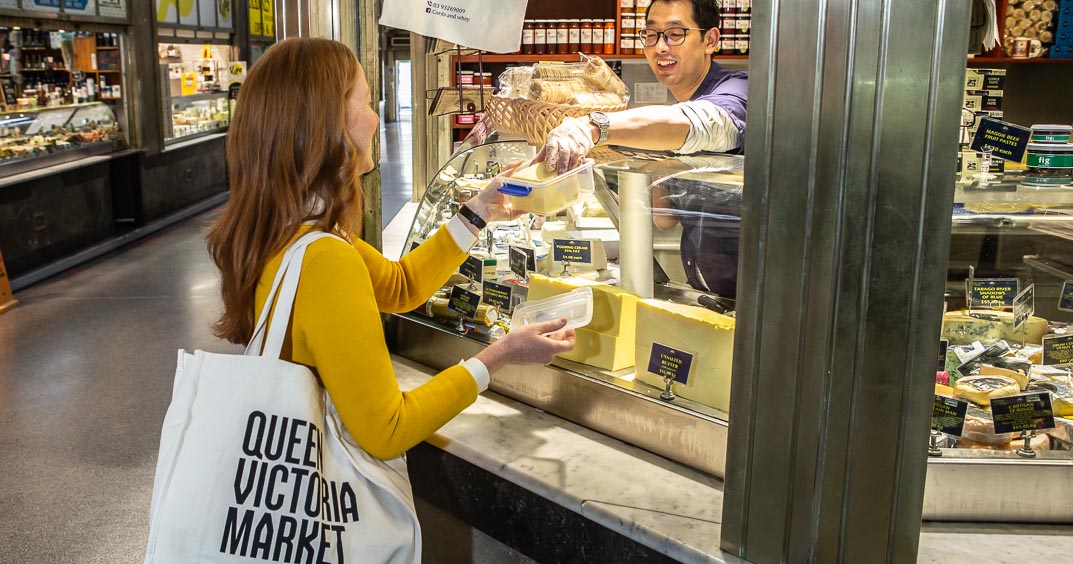Take the plastic-free challenge this July

Looking at your plastic use is a great first step to reducing waste and addressing bigger environmental issues. But it can be daunting trying to figure out where to begin, especially when it feels like everything around us is made of plastic.
Plastic Free July is an Australian led initiative that has now gone global helping millions reduce plastic by asking participants to say no to the top pesky plastics; straws, plastic bottles, plastic packaging and takeaway, plastic bags, takeaway coffee cups and cutlery. Of course, if the challenge has been attempted before, participants can try reducing plastic in other areas of their homes like the bathroom and laundry.
The goal of the challenge is to show life can be lived with less plastic and the benefits a plastic-free life can provide. Participants gain the mental tools to change habits, learning to pause and think how we, as individuals, can make an impact for the better and reduce our reliance on plastic.
Tip: Utilise the Market’s pick-a-box locations for free cardboard boxes to take your produce home rather than using plastic bags.
Swap plastic produce bags for reusable mesh, cloth bags or buy your produce naked
Most fruit and vegetables don’t require plastic bags, simply wash the produce when you get home. But some veggies might and that’s when we use drawstring bags made from cotton or lace curtains. We also use our cloth produce bags to buy our loaves of bread and beans, rice, flour, nuts and dried fruits. There are many brands selling reusable bags these days. Swapping out one plastic produce bag for a reusable bag once a week will save 52 plastic bags each year, showing that one small swap adds up.
Tip: SisterWorks have partnered with Queen Victoria Market to sell their produce bags made by women who are refugees, asylum seekers or migrants with funds going directly back to the makers. Purchase from the Queen Vic Market Visitor Hub. Market Espresso have trolley hire for Market shoppers.
Say no to plastic straws
Plastic straws can be helpful for medical reasons but the vast majority of people don’t require a plastic straw to enjoy a drink. Plastic straws are not available at Queen Victoria Market and elsewhere you can simply refuse (saying no is free!) or invest in a reusable straw made of silicone, metal, bamboo or glass. But I promise the milkshake will be just as tasty without the straw and kids can navigate a drink straw free too.
Swap coffee cups for a reusable mug or sit down to enjoy your hot drink
Most take away coffee cups have a lining of plastic and a hot liquid like coffee could encourage leaching from the plastic. I suggest sitting in to enjoy your coffee and taking some time out, otherwise if you need to get your hot drink to go invest in a reusable cup or bring a mug from home.
Tip: You can purchase a reusable coffee cup at Queen Victoria Market’s information hub, Market Espresso and McIver’s Coffee & Tea.
Avoid plastic bottles and choose a reusable bottle
My first reusable bottle was an old glass juice bottle that I still use today. I take it everywhere and can get it refilled at cafés, restaurants and public drinking fountains using the WeTap app. The bonus for saying no to plastic bottles is I weened myself off sugary drinks. If I need to enjoy a cordial or fizzy drink I can easily make my own using ingredients like ginger or lime found in the Market.
Tip: You can refill your own bottle at our water refill stations in the Market.
Swap plastic packaging for BYO containers
Whether I’m at the deli counter or getting takeaway I bring a reusable container to collect my food. Plastic containers cost a lot for businesses, so not only are we helping reduce plastic but also helping small business. I can even bring my own bottles to the Soap Box to refill a range of liquid soaps and detergents.
Tip: Both Nut Trek and Corner Larder encourage customers to bring their own bags, packaging, and glass containers and they will fill it to the best of their ability. The Corner Larder also offers to wrap your small goods in paper.
Plastic cutlery
Some eateries only have singe-use plastic cutlery options. To avoid using the plastic cutlery we bring along something called a cutlery roll with a wooden fork, spoon, knife and serviette. This has saved hundreds of plastic spoons and fits nicely into my bag.
Here are some simple tips to help remember those reusables:
- Use the calendar app on your phone to help remind you
- Keep reusables by the front door
- Place notes around the house with friendly prompts
- If you have kids ask them to monitor your plastic use
- Get friends involved to help keep you accountable and make it fun
Written by Erin Rhoads of The Rogue Ginger, expert on zero waste and sustainable living.

